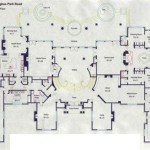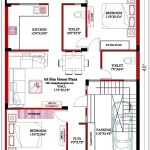House Plans Without Garages: Exploring the Essentials
In contemporary architecture, houses without garages are gaining popularity due to several factors. Whether driven by urbanization, environmental concerns, or personal preferences, these residences offer unique advantages and challenges. To help you understand the intricacies of house plans without garages, here's a comprehensive guide to their essential aspects.
Advantages of Houses Without Garages
Space Optimization: Eliminating the garage frees up considerable space, which can be utilized for other purposes such as additional living areas, outdoor spaces, or gardens.
Cost Savings: Garages are typically the most expensive rooms to construct in a house. Building without one can significantly reduce construction costs.
Environmental Benefits: Reducing the need for car storage can minimize environmental impact, promote alternative transportation, and enhance air quality.
Challenges of Houses Without Garages
Parking: Addressing parking needs is crucial when designing a house without a garage. Off-street parking spaces, tandem driveways, or shared parking agreements may be necessary.
Storage: Traditional garages provide convenient storage space for vehicles, tools, and other items. Alternative storage solutions, such as sheds, built-in cabinets, or attic spaces, must be incorporated into the plan.
Weather Protection: Vehicles and other equipment may be exposed to harsh weather conditions without a garage's cover. Protective measures like carports, covered patios, or weather-resistant storage units should be considered.
Essential Elements of House Plans Without Garages
Alternative Parking Solutions: Off-street parking spaces, tandem driveways, or shared parking arrangements should be factored into the design to accommodate vehicle parking.
Additional Storage: A well-thought-out storage plan is essential, including sheds, built-in cabinets, attic spaces, or other suitable storage solutions.
Weather Resistance: Carports, covered patios, or weather-resistant storage units can provide protection for vehicles, equipment, and other items exposed to the elements.
Design Considerations: Houses without garages require careful design to ensure adequate natural light, ventilation, and curb appeal. Architectural elements such as porches, courtyards, or landscaping can enhance the aesthetic and functional value.
Lifestyle Compatibility: Consider the lifestyle and needs of the occupants. If regular car use or ample storage is essential, a house without a garage may not be suitable. However, those prioritizing space optimization, environmental consciousness, or urban living may find these plans highly appealing.
Conclusion
House plans without garages offer a distinctive opportunity to optimize space, save costs, and align with environmentally conscious lifestyles. By carefully addressing parking, storage, weather protection, and design considerations, it is possible to create comfortable, stylish, and functional homes that seamlessly integrate with modern living.

House Plan 053 02296 Country 1 227 Square Feet 3 Bedrooms 2 Bathrooms Plans With Photos Bedroom

Best Two Story House Plans Without Garage Drummondhouseplans

Minimalist Floor Plans With Porches Houseplans Blog Com

Uhomedesignlover Com Garage House Plans 4 Bedroom Small

Houseplansplus Com Cottage Style House Plans New Tiny

Plan 4 Hpp 3505 House Plans Plus

Adobe Southwestern Style House Plan 4 Beds 3 Baths 2129 Sq Ft 1 1442 Houseplans Com

Affordable House Plans 800 To 999 Sq Ft Drummond

Country Style Home 5 Bedrms 3 Baths 3016 Sq Ft Plan 187 1007

Beach House Plan With 3 Bedrooms And 2 5 Baths 7168








